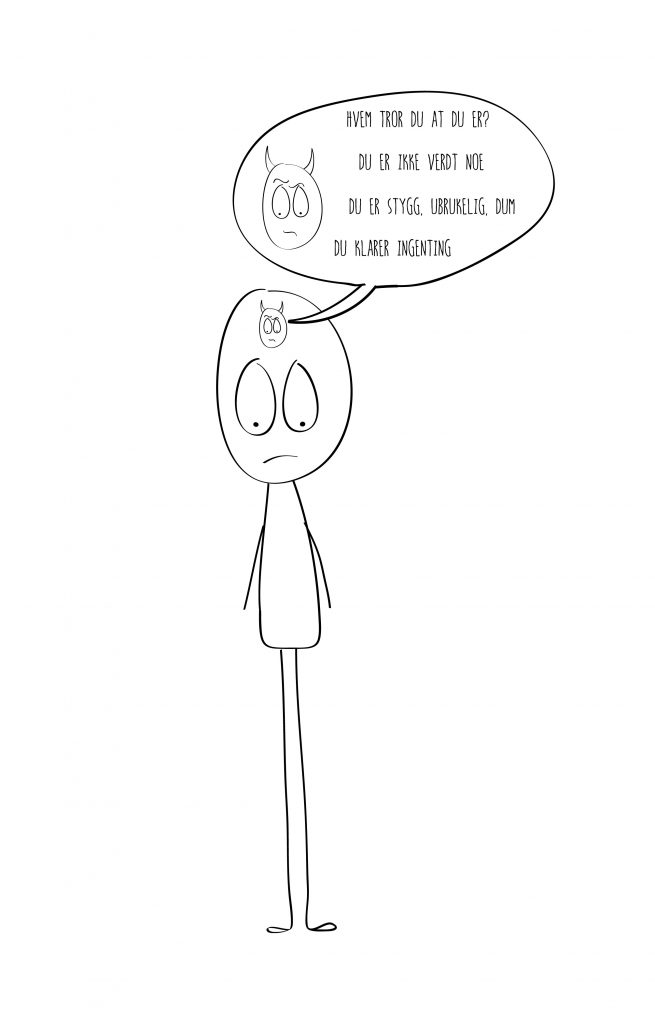
We all carry an inner critic that sits on our shoulder, ready to let us know when we make mistakes, when we fall short of our standards or compares us with others. Your inner critic, when helpful, is the part of you that is trying to make sure that you fit in and that helps you reach your goals.
However, our inner critic usually is not only helpful. It is ofte too eager or too strong. It is the part of you that makes you feel ashamed, unworthy and makes you try to hide aspects of yourself from the rest of the world.
When the critic becomes harsh, it usually tells you that you are too ugly, too stupid, too fat or that there is something fundamentally wrong with your character. It can convince you that nobody really likes you, that you can just give up and it can make you want to stay in bed under your cover for the rest of your life. If your critic is recurrently yelling at you or putting you down, it may be useful to work with your inner critic. You will find an exercise to work with self-criticism in the Exercise Library.
Harsh inner critics are there often for a reason. They have often developed as an effort to help you deal with something difficult and make you adapt to your surroundings. For example, it is common to struggle with self-criticism if you have been bullied, teased, criticized, or have never been recognized for who you are.
Such painful memories ofte contain poisonous emotions that can be so strong and overwhelming that it is not so easy to argue with or convince that you are good enough. When we work with self-criticism in Emotion-Focused Therapy, we try to get in touch with the painful emotions of shame and guilt and then get access to other and more adaptive emotions, for instance to feel assertive anger in order to stand up to your inner critic. This ofte results in the ability to feel compassion towards yourself rather than criticize yourself. So, we work to go into the difficult emotions to change them.
We can also recommend this lovely film about self-criticism, created by psychologist Anne Hilde Vassbø Hagen.
